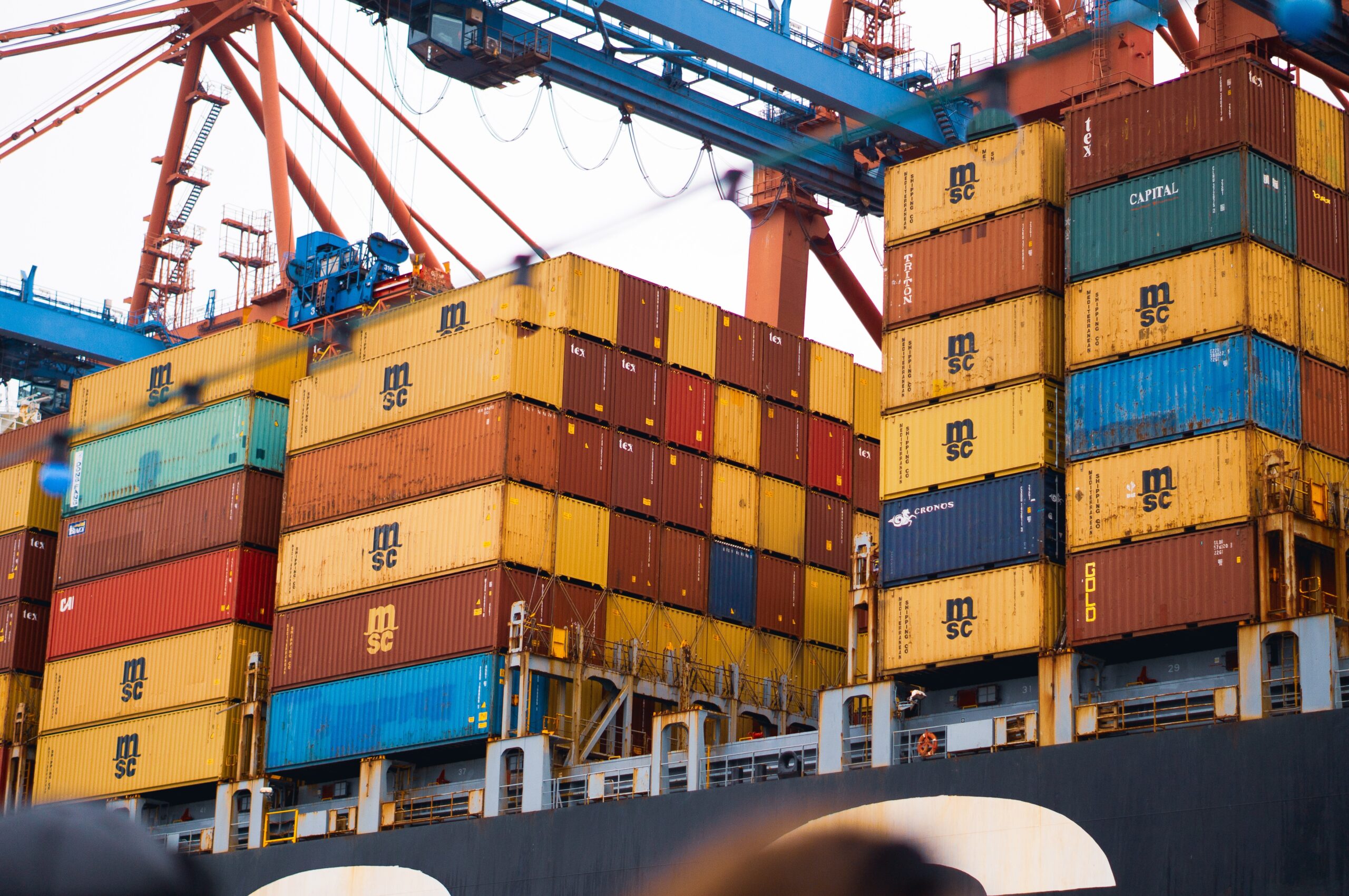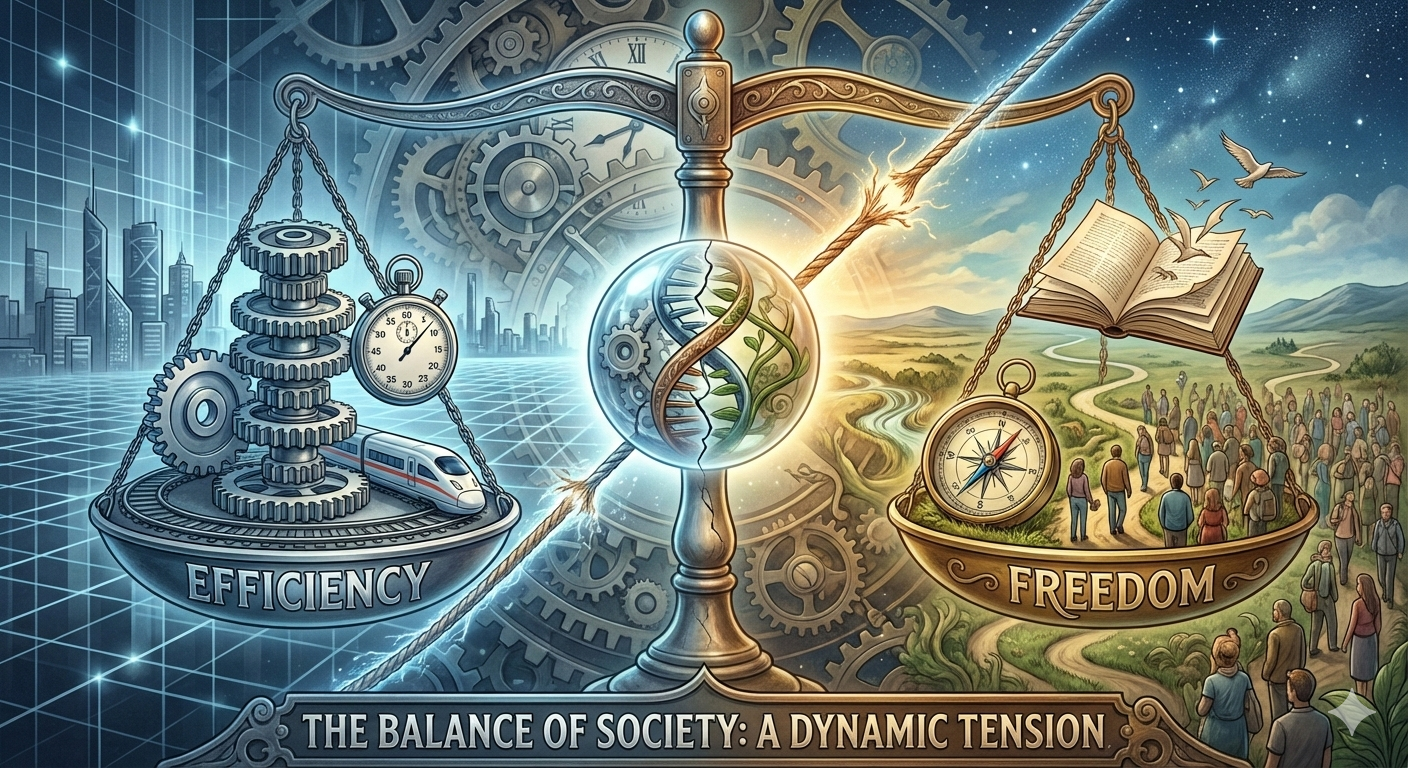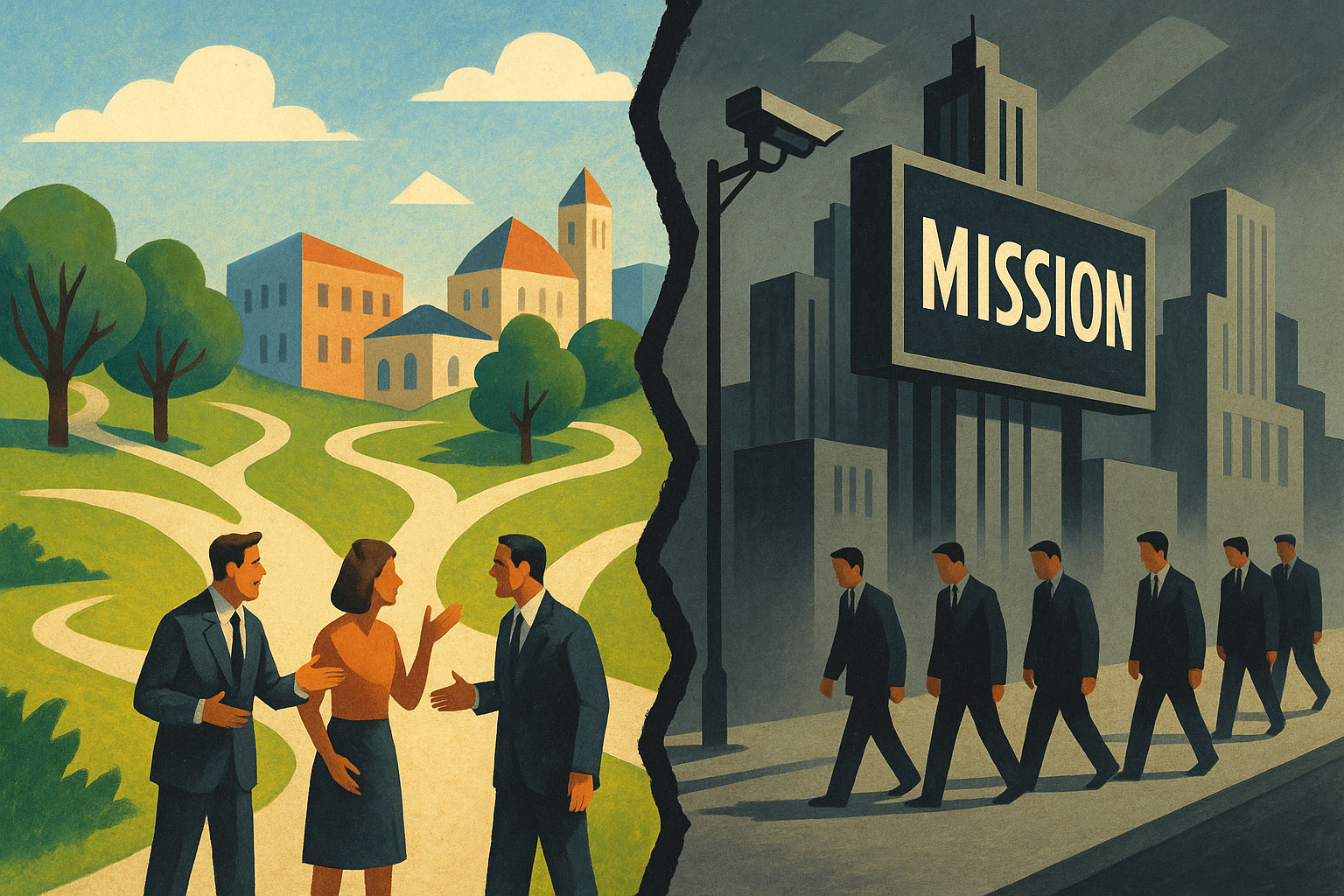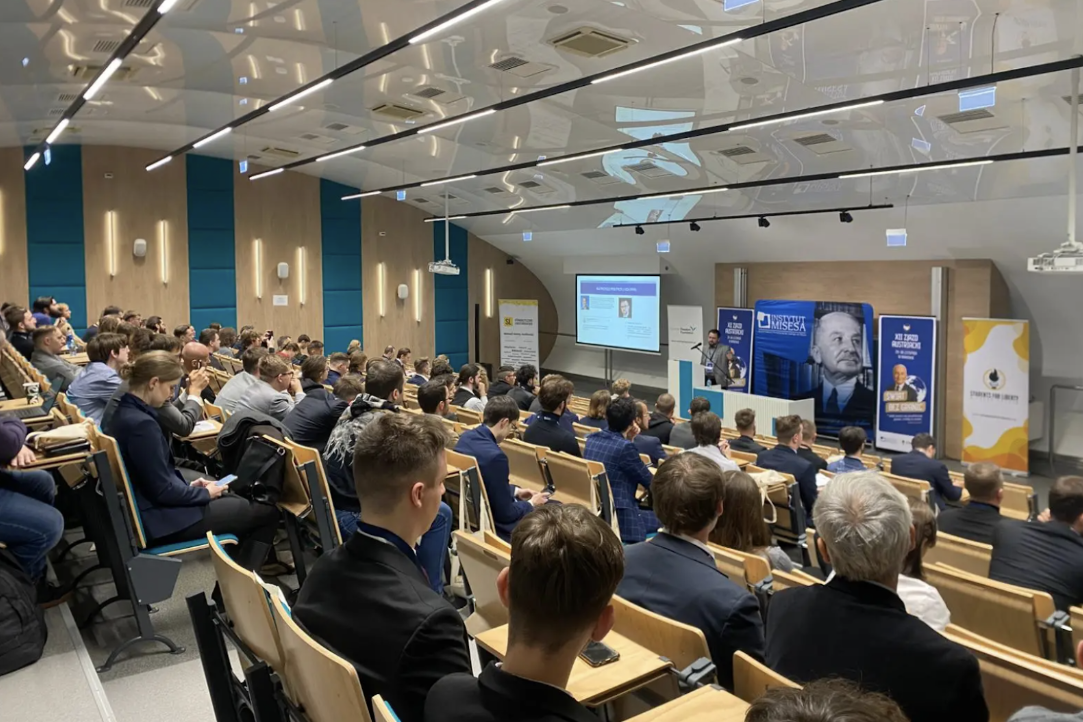Image citation: Globalisation phenomenon by Eilis Gravey, licensed under Unsplash
Many people have strong feelings about globalization, but I’m not going to talk much about feelings. I’ll talk about reasons, logic, and evidence. It matters that the arguments make sense, that they be capable of being verified or refuted, and that we engage the heart through the mind. I hope to engage your minds so that you may engage your hearts on the side of humanity. It’s common for opponents of globalization to use the term as a catchall for all the features of human life that they don’t like. I’ll use “globalization” more precisely to refer to the diminution or elimination of state-enforced restrictions on exchanges across borders and the increasingly integrated and complex global system of production and exchange that has emerged as a result. The pressing questions are what the effects of globalization actually are and whether they’re beneficial or harmful.
The core policy issue is whether a border should be used to stop transactions that would be allowed if both parties were on the same side of it. Should American wheat farmers be allowed to buy cell phones from people in Finland? Should Ghanian weavers be allowed to sell the shirts and pants they make to German autoworkers? I think that the answer is yes. Opponents of globalization, from the left and the right, from Ralph Nader to Patrick Buchanan and Jean Marie Le Pen, say no. Before I explain why I say yes, let me emphasize that the debate is not about the interaction of numbers but about the interaction of real people, people of flesh and blood with bodies and minds and lives of meaning and significance.
To put some of that flesh and blood on the formal arguments, let me tell you a story. Last year a Mayan friend who teaches anthropology in Guatemala took me to the Mayan highlands. He told me that anthropologists from Europe and the United States who want to “study” the Indians complain that many Mayan women don’t wear their beautiful and laboriously handmade indigenous clothing every day. That garb is increasingly reserved for special occasions, such as christenings and weddings. The reaction of the visitors is almost uniformly one of horror. The Mayans are being robbed of their culture, they say. They are the frontline victims of globalization and cultural imperialism. The visitors don’t bother to ask the Mayan women why many of them don’t wear traditional clothing, but my friend does. The women tell him that they don’t wear their handmade clothes because they have become too expensive.
Now, what does it mean for handmade clothes to become too expensive? It means that the labor of a Mayan woman has become more valuable. Instead of spending hours and hours at a hand loom making a shirt to wear, she can spend that time making the same shirt to sell to a lady in France and use the proceeds to buy three outfits—and eyeglasses, or a radio, or medicine against dengue fever. Or women can make something else and still be able to buy more of the things they value. They’re not being robbed. They’re becoming wealthier. And from their perspective, that’s not a bad thing. But from the perspective of what my friend calls the anti-globalization “poverty tourists,” who like to take pictures of colorful poor people, it’s a big disappointment. So when we discuss globalization, let’s keep in mind the women who make garments that are now becoming too expensive for them to wear every day. Those are the flesh and blood people whose fates will be decided, for better or for worse, by the debate over globalization. Will they become richer or poorer—will their lives be longer or shorter—as a result of wise or foolish policies?
MYTHS ABOUT GLOBALIZATION
Globalization Eliminates Jobs.
Trade policy doesn’t affect the number of jobs, but it does affect the kinds of jobs people have. If protectionism increases the number of jobs in import-competitive industries, it correspondingly decreases the number of jobs in exporting industries, that is, in the industries that produce goods that would have been exchanged for the goods that would have been imported but are now made more expensive by tariffs or excluded by quotas. Exports, after all, are the price we pay for imports, as imports are the price foreigners pay for our exports, so if you cut down on the value of goods imported through a tariff, you diminish the value of goods exported to pay for those imports. That means job losses in exporting industries.
Globalization Directs Capital Where Wages are Lowest and Exploits the Poorest Workers.
If it were true that capital flows where wages are lowest, we would expect Burkina Faso and other impoverished low-wage countries to be awash in foreign investments. The claim has testable implications, so we can check. During the 1990s, 81 percent of U.S. foreign direct investment went to three parts of the world: desperately poor Canada, impoverished Western Europe, and starving Japan. Developing nations (with rising wages) such as Indonesia, Brazil, Thailand, and Mexico accounted for 18 percent. And the rest of the world, including all of Africa, shared the remaining 1 percent. Investors put their capital where it will yield the highest return, and in general that is where wages are highest, not lowest. Further, enterprises set up by foreign investors tend to pay higher wages than domestically owned enterprises, because the foreigners want to attract and retain the best workers.
Capital Is Exported from Rich Countries to the Third World Creating Sweatshops, Which Then Export Lots of Cheap Goods to Richer Nations, Generate Trade Surpluses, and Undercut Manufacturing in Rich Countries, So All Are Made Worse Off.
I hear that kind of story on college campuses frequently. It’s so confused it’s hard to know where to start. First, it’s not possible to have both a capCato’s Letter provides excerpts from dynamic speeches on liberty and insightful articles about the state of civil society. If you export more than you import, you’re getting something in exchange for your exports, and what you’re getting is ownership of assets—or net investment—in the countries to which you’re exporting. If you import more than you export—as the United States has done for some decades—you have to sell something to the foreigners who are sending you their products, and what you’re selling is assets, such as shares in companies. The fundamental accounting identity is Savings – Investment = Exports – Imports. Most of the scare scenarios conjured up by opponents of globalization rest on simple ignorance of the most basic elements of international trade accounting.
Globalization Causes a Race to the Bottom in Environmental and Labor Standards.
Another fallacy is that capital flows where environmental and labor standards are lowest. But check the facts. Investors invest where returns are greatest, which tends to be where labor is most productive, which is where people are correspondingly richer—and richer people tend to demand better, not worse, environmental amenities and working conditions. The two cases most commonly cited as examples of allegedly negative environmental effects of trade agreements—the “tuna/dolphin” and “shrimp/turtle” cases—show a race to the top, not to the bottom, as other countries have adopted U.S. legal standards to protect dolphin and sea turtles. The same is true of working standards. Jobs in foreign-owned enterprises are usually greatly sought after, because they both pay higher money wages and offer better working conditions than the domestic alternatives.
Globalization Creates a Homogeneous American Culture around the World.
It is indeed true that the United States is a cultural attractor and that some people—usually elites—oppose that. But consider the craze that took the entire world by storm, the little English wizard Harry Potter, or the craze that swept through seven-year olds the world over a few years ago, the Japanese Animé phenomenon, India’s “Bollywood” film industry, and so many other contributions from non-American cultures, all of which are enriching us and each other. Not to mention Thai food, or the ability to listen to songs recorded in virtually every language spoken on the planet. If cultures are kept hermetically sealed and unchanging, they cease to be human cultures; they become museum exhibits. Globalization is culturally enriching.
Globalization Creates Inequality.
The causes of rising or falling inequality are complex, but there is substantial truth to the claim that globalization causes inequality: the wealth gap between countries that have closed economies and those that have free trade keeps growing. That’s not the inequality the anti-globalizers have in mind. Within countries that have opened their economies to trade and investment, middle classes have grown, which means less income inequality, rather than more.
BENEFITS OF GLOBALIZATION
Globalization Leads to Peace by Diminishing the Incentives for Conflict.
Protectionism is based on a mentality and a corresponding set of policies that emphasize the opposing interests of nations. Free trade, in contrast, links nations together in peace. There’s an old adage: when goods cannot cross borders, armies surely will.
Trade Creates Wealth.
Imagine that someone created a machine that would allow you to push through one door things you can make cheaply and through the other door would come things you’d like to have but that cost you more to produce. The inventor of that machine would be hailed as a benefactor of mankind—until Ralph Nader or Pat Buchanan showed that it was … a port! Then, instead of being hailed as a benefactor, the “inventor” would be vilified as a destroyer of jobs—and unpatriotic, to boot. But what’s the difference between such a marvelous machine and trade?
Trade Leads to Benefits for All.
The most common error of protectionists is to confuse absolute advantage with comparative advantage. Even if the person in the front row is better at everything than I am, we each benefit from trade if he specializes in what he does best and I specialize in what I do best. The old example of the typist and the lawyer applies across borders as well as within offices. The lawyer can both write legal briefs and type better than the typist, but both benefit by the lawyer specializing in writing legal briefs, which cost less in terms of lost typing output, and the typist typing them up, which costs less in terms of lost legal argumentation, since the typist is better at typing than at arguing law. Total joint output is higher and each receives more income. That’s one reason why trade is so closely connected with peace, as well. It’s because people can see their fellow humans as partners in mutually beneficial cooperation, rather than as deadly rivals, that human society is possible in the first place. Trade is at the very foundation of human civilization.
Free Trade Is the Fastest Route to the Elimination of Child Labor.
Around the world approximately 160 million children labor (Statistics changed to match the present data from 2021). The percentage of children who labor has fallen—not risen—with rising trade and globalization, and for pretty obvious reasons. Poor countries are not poor because children work. Children work because they are poor. When people become richer through production and free exchange, they send their children to school, rather than to the fields. Global trade is the fastest route to the elimination of child labor and its replacement by child education.
Free Trade Is a Fundamental Human Right.
The anti-globalizers and protectionists start with the assumption that they have the right to use force to stop you and me from engaging in voluntary exchange. But fundamental rights should be equal for all humans, and the right to engage in trade is a fundamental right, one enjoyed by all humans, regardless of on which side of a border they may live. Free trade is not a privilege; it is a human right. Trading is distinctively human. It distinguishes us from all the other animals. It’s based on our faculty of reason and our ability to persuade.
As Adam Smith noted in a lecture on March 30, 1763, “The offering of a shilling, which to us appears to have so plain and simple a meaning, is in reality offering an argument to persuade one to do so and so as it is for his interest.” As he noted, other animals may cooperate, but they don’t trade, and they don’t trade because they don’t employ reason to persuade. Not only is trade distinctively human, it is also a distinctive feature of civilization, as Homer observed in The Odyssey.
In Book 9, when Odysseus tells of reaching the land of the Cyclops, he offers some thoughts on why the Cyclops is a “lawless brute.”
Odysseus observes that
The Cyclops have no ships with crimson prows,
No shipwrights there to build them good trim craft
That could sail them out to foreign ports of call
As most men risk the seas to trade with other men.
The Cyclops is a savage because he does not trade. He lives in the preferred world of the anti-globalizers, a world without trade, a world in which all production is local. Protectionism should be rejected not merely because it is inefficient. It should also be rejected because it leads to conflict and war, because it is immoral, and because it is uncivilized.
The piece was originally published in the Cato Institute’s publication Cato’s Letters as part of the 2002 fall issue and permission from the author has been obtained to republish the piece on Bastiat Scrolls due to the topic’s relevancy in present times.








